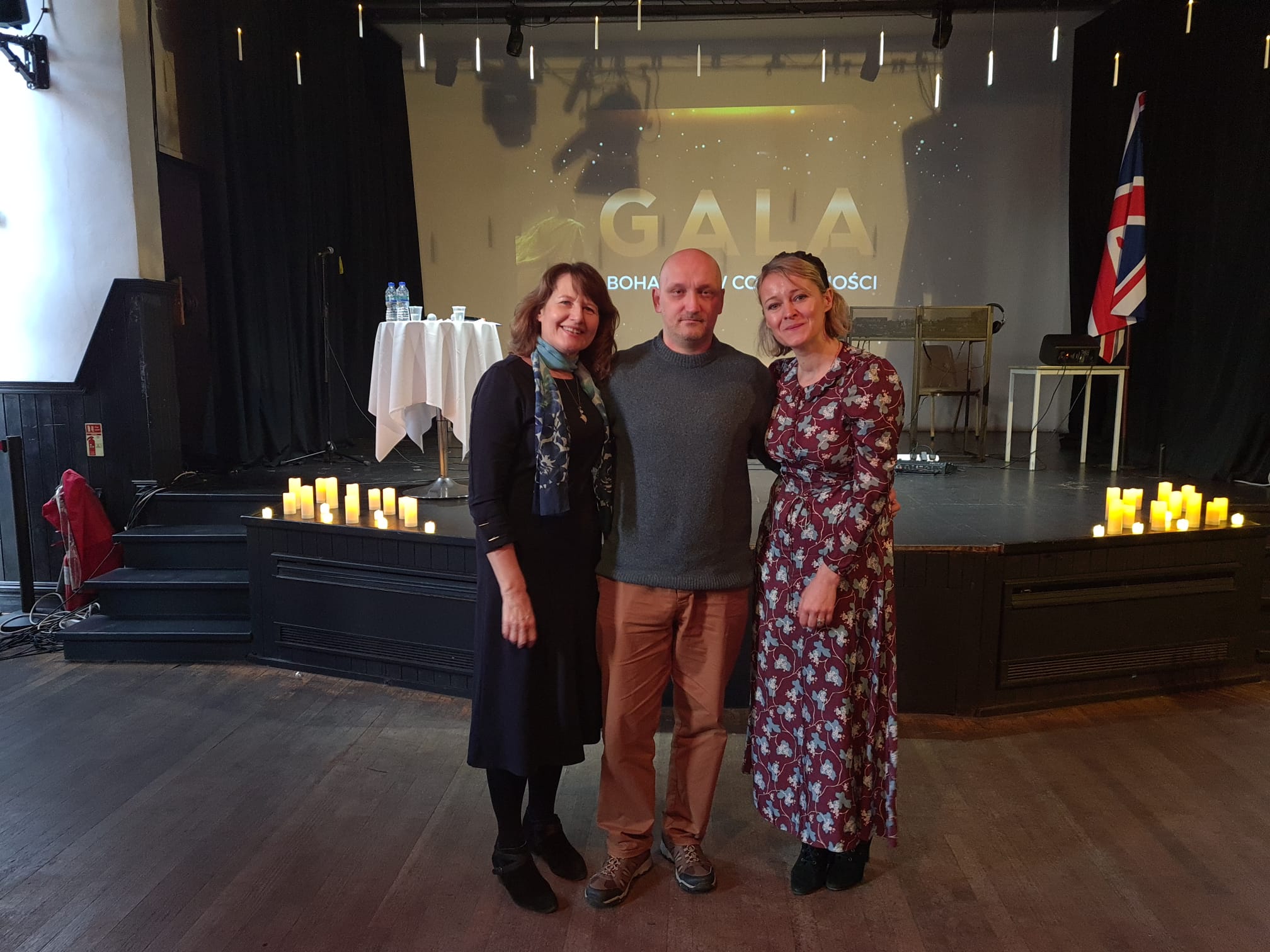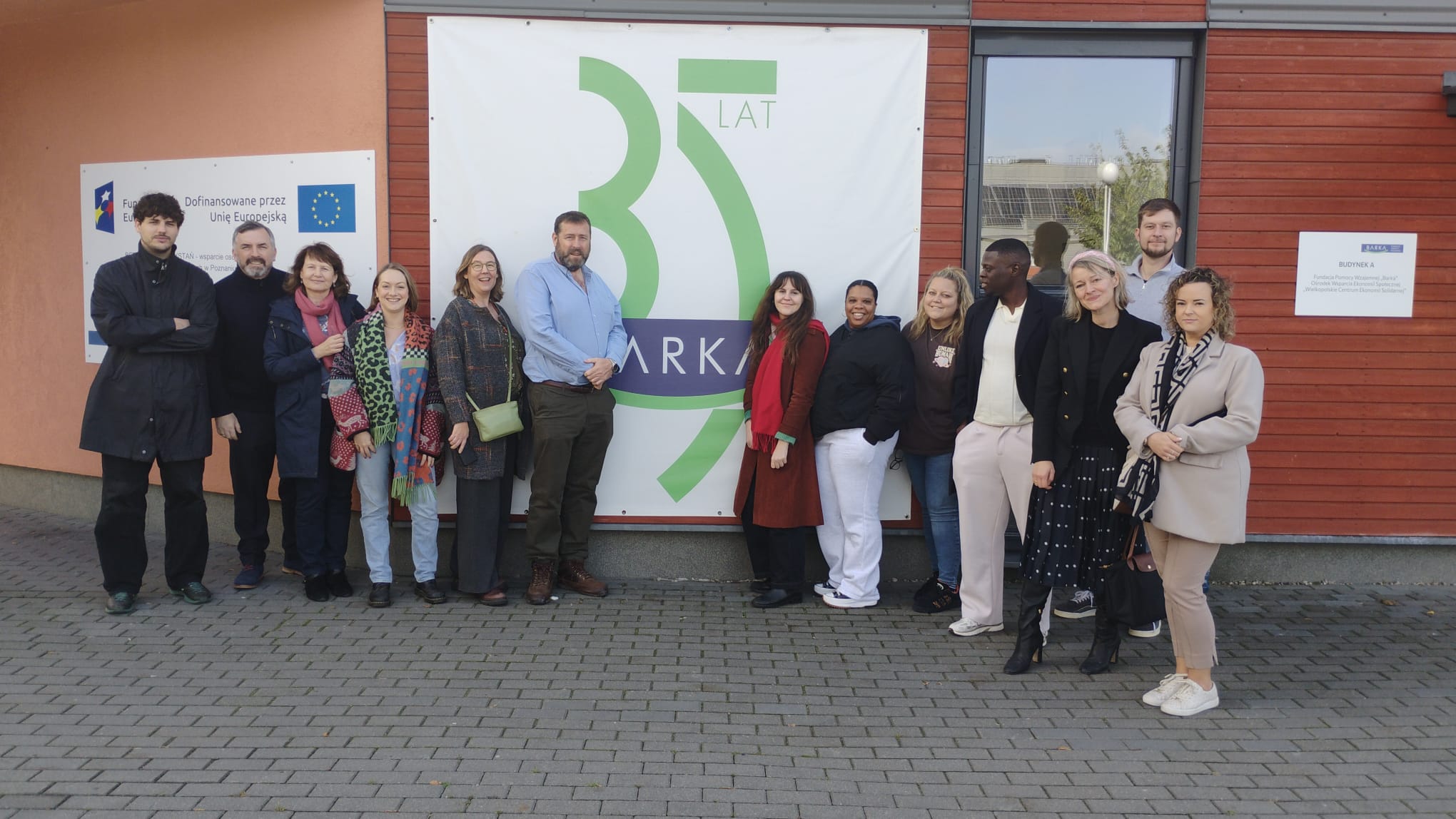On 15th of November, the Expert Committee on Combating Homelessness met at the Commissioner For Human Rights Offices in Warsaw. The subject of the meeting was the situation of Polish citizens in the homelessness crisis abroad, especially in the context of access to medical services financed from public funds and communication with the appropriate Polish services in cases of sudden life-threatening situations or inability to make informed decisions, as well as financing rehabilitation and psychiatric treatment.
In addition to its members, the meeting was attended by representatives of the Ministry of Health (Anna Rusiecka from the Department of Healthcare) and the Ministry of Foreign Affairs (Michał Wybiral from the Consular Department), Witold Rutka (Department of Cooperation with the Polish Diaspora and Poles Abroad), senator Adam Bodnar (the Senate Committee on Emigration and Contacts with Poles Abroad) and representatives of non-governmental organisations from abroad.

The session was opened by Deputy Commissioner for Human Rights Stanisław Trociuk. At the beginning of the meeting, the appointment to the Expert Committee were presented to Mr Jakub Wilczek, the new co-chairman of the Committee. In his speech Mr Trociuk drew attention to the provisions of the Constitution, from which one can clearly derive the right to assistance from public authorities in obtaining health care services financed from public funds for all citizens, regardless of their place of residence. Legal regulations should implement this obligation of the state resulting directly from the Constitution.

Speakers representing non-governmental organisation from abroad were:
Barbara Pasnicki – she described the functioning of Caritas in Berlin, which takes care of Poles in very serious condition, after accidents, with serious illnesses: after waking up from a coma, paralysis, after road accidents. Such people can count on the Caritas help in arranging further medical help and support and contact with their families, although they are very limited by the number of places and the rigorous approach of local authorities to include homeless Poles in obtaining more free medical services.
Anna Maria McKeever from Barka UK briefly described how care for homeless people looks like in the individual countries where Barka Foundation helps homeless people on a daily basis, especially those without any recourse to public funds, (Ireland, Great Britain, the Netherlands, Belgium, Germany) and what difficulties Barka’s streekworkers and their Beneficiaries face most often. She also drew attention to the fact of helping people requiring psychiatric care, detox and language barrier – because these aspects most often speak in favour of returning to the country of origin of each homeless person. An important topic that Anna Maria touched on (and which was developed in his speech by Dr. Skajster) was the issue of safe and easy transport for Barka Beneficiaries who need special medical transport to Poland assistance due to being patients of psychiatric hospitals and continuing such treatment in Poland.
Dr. Tomasz Skajster described in detail the nature of his work as a neurosurgeon and a great social activist who helps homeless Poles regain health in one of the hospitals in Berlin. He helps those Poles who remain unconscious after surgeries or in a coma and have no possibility of contact with their families in Poland. Dr. Skajster asked for the simplification of civil law procedures related to the incapacitation of Poles who, after accidents, are unable to function without the help of their family/medical care, and he also invited a Polish attorney, whose services he used many times in Berlin to participate in the discussion.

The issue was reported in the summer of 2024 by the Polish consular mission in Berlin and a neurosurgeon working at the local hospital, Dr. Tomasz Skajster. According to them, neither the Act on Healthcare Services Financed from Public Funds nor, even more so, the Constitution of the Republic of Poland deprive Polish citizens of the right to obtain confirmation of the right to healthcare services financed from public funds when crossing the state border. However, the Polish state does not show any commitment in providing assistance to this group in need. Meanwhile, in Berlin itself, every month at least several Polish citizens in the homeless crisis – or those who cannot be contacted due to their health condition – need urgent medical assistance, including neurosurgical operations. Obtaining confirmation of the right to medical services financed by the Polish state is very difficult and time-consuming.
The guests pointed out that the majority of people in the crisis of homelessness are people with mental disorders or addictions, who require psychological therapy and psychiatric treatment. This is unattainable for them abroad, both due to costs, but above all due to the language barrier.
The representative of the Administrative and Economic Law Team at the Human Rights Ombudsman, Ewa Talma-Pogrzebska, based on the complaints submitted, characterized the legal basis for the Polish state’s assistance in such situations. She discussed an individual case in which the Human Rights Ombudsman joined administrative proceedings concerning the confirmation of the right to healthcare services financed from public funds – pursuant to Article 54 of the Act on Healthcare Services Financed from Public Funds – for a person in a homeless crisis, hospitalised abroad in a life-threatening condition. In this case, the Local Government Appeal Board fully agreed with the arguments of the Ombudsman, in particular in the scope of applying a pro-constitutional interpretation of the provisions. As a result, the person received a positive decision.
In the opinion of the representatives of the Administrative and Economic Law Team and the Labour Law and Social Security Team at the Human Rights Ombudsman, the following systemic problems can be seen in the discussed scope: lack of a definition of place of residence in the Act on Healthcare Services Financed from Public Funds; lack of reference in the interpretation of the concept of place of residence to the provisions of the Civil Code and the need to simplify the procedure in urgent situations, when human life is directly at risk. Representatives of the ministries drew attention to the need to take into account the provisions of EU law when interpreting Polish regulations, as well as to the practice and legislation in other countries and the obligations arising for Poland from bilateral agreements. It is often these regulations that determine which country and which legal system is competent for assessing the right to medical services financed from public funds. It was pointed out that before making a decision to change the regulations, the possibility of changing the interpretation of the regulations in force should be considered, as well as using institutions that already exist in Polish law, e.g. in the administrative procedure.

Demands were put forward for decisions on confirming the right to medical services financed by Poland to be issued by consuls, who are able to assess the situation of a person experiencing homelessness outside Poland more quickly and precisely, for waiving the need to notify the person concerned by the decision to initiate administrative proceedings and for replacing the social interview with a statement from a trustworthy person (e.g. a hospital doctor or a representative of a local non-governmental organisation).




